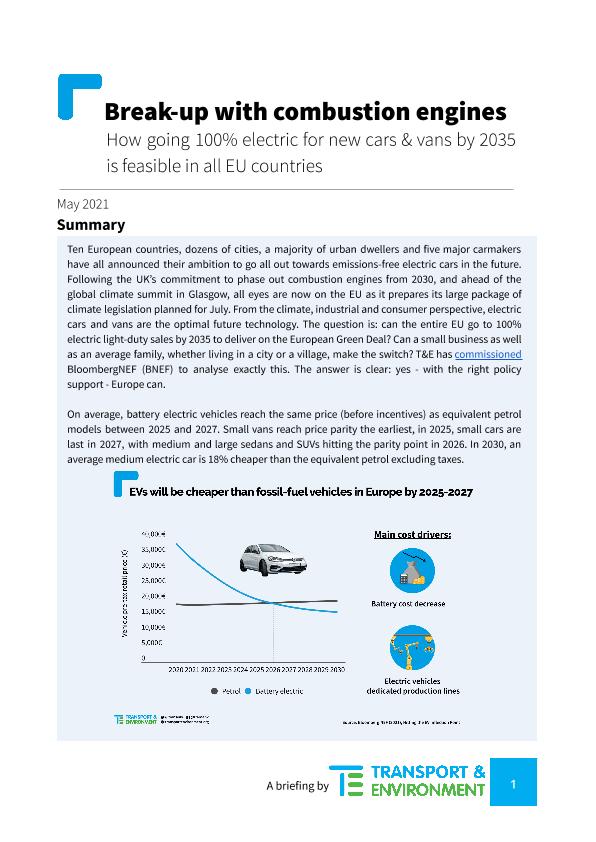Break-up with combustion engines : how going 100% electric for new cars & vans by 2035

Contenido multimedia no disponible por derechos de autor o por acceso restringido. Contacte con la institución para más información.
| Tag | 1 | 2 | Valor |
|---|---|---|---|
| LDR | 00000cam a22000004 4500 | ||
| 001 | MAP20210015595 | ||
| 003 | MAP | ||
| 005 | 20210603170159.0 | ||
| 008 | 210603s20210105bel|||| ||| ||eng d | ||
| 040 | $aMAP$bspa$dMAP | ||
| 084 | $a892 | ||
| 245 | 1 | 0 | $aBreak-up with combustion engines$b: how going 100% electric for new cars & vans by 2035 |
| 260 | $aBrussels $bTransport & Environmen$c2021 | ||
| 300 | $a21 p. | ||
| 520 | $aTen European countries, dozens of cities, a majority of urban dwellers and five major carmakers have all announced their ambition to go all out towards emissions-free electric cars in the future. Following the UK's commitment to phase out combustion engines from 2030, and ahead of the global climate summit in Glasgow, all eyes are now on the EU as it prepares its large package of climate legislation planned for July. From the climate, industrial and consumer perspective, electric cars and vans are the optimal future technology. The question is: can the entire EU go to 100% electric light-duty sales by 2035 to deliver on the European Green Deal? Can a small business as well as an average family, whether living in a city or a village, make the switch? T&E has commissioned BloombergNEF (BNEF) to analyse exactly this. The answer is clear: yes - with the right policy support - Europe can. | ||
| 650 | 4 | $0MAPA20100011164$aVehículos eléctricos | |
| 650 | 4 | $0MAPA20080600877$aDesarrollo sostenible | |
| 650 | 4 | $0MAPA20080617219$aIndustria automovilística | |
| 650 | 4 | $0MAPA20080569556$aMedio ambiente | |
| 651 | 1 | $0MAPA20080637743$aEuropa | |
| 710 | 2 | $0MAPA20190010160$aTransport & Environment |

